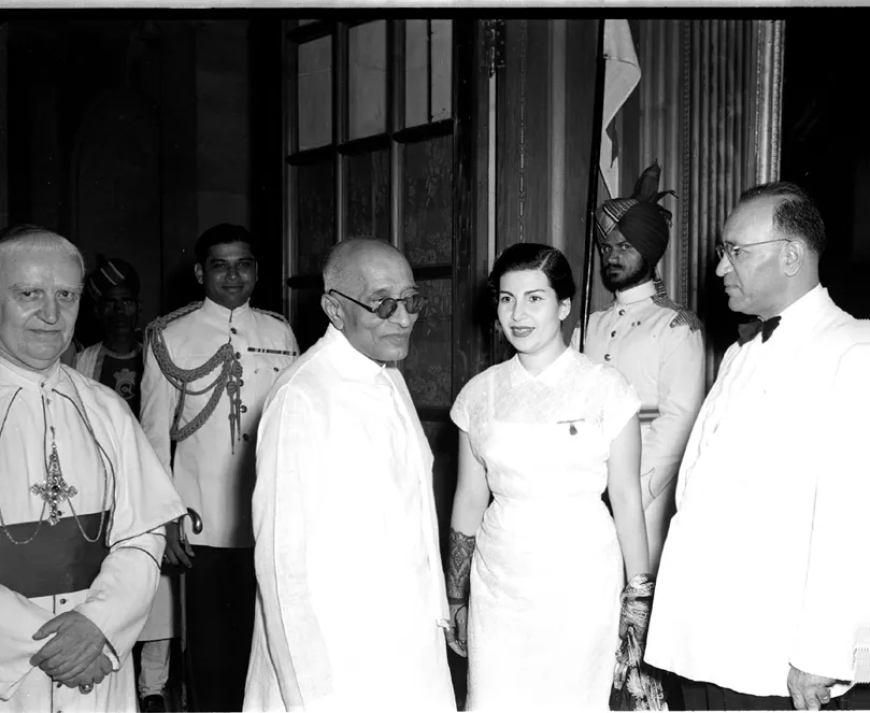History of Libertarianism in India
Explore the origins and evolution of libertarianism in India, from its philosophical roots to its modern-day impact. This article delves into key historical milestones, influential figures, and the sociopolitical factors that have shaped libertarian thought in the Indian context. Learn how libertarianism has influenced Indian politics, economy, and society over the decades. Perfect for history enthusiasts and those interested in political ideologies, this comprehensive guide provides an insightful overview of libertarianism’s journey in India.

Explore the evolution of libertarianism in India, from its philosophical origins to its contemporary influence. This comprehensive guide covers key historical milestones, influential figures, and the sociopolitical factors that have shaped libertarian thought in the Indian context. Discover how libertarian principles have impacted Indian politics, the economy, and society over the decades.
Early Influences

Libertarian ideas are deeply rooted in India’s history. Ancient Indian philosophies, including Chanakya’s Arthashastra, emphasized minimal state interference in economic activities and highlighted the importance of trade, wealth generation, and individual autonomy. The Panchayat system, which encouraged decentralized governance, aligns with libertarian principles of self-rule and local autonomy.
A notable modern example is Mahatma Gandhi’s concept of Swaraj (self-rule), which stressed personal and communal freedom. Gandhi’s vision of governance revolved around empowering individuals and communities, reducing reliance on centralized authority.
Post-Independence
Following India’s independence in 1947, the government adopted a socialist framework, controlling significant portions of the economy and imposing heavy regulations. However, libertarian resistance emerged in the form of the Swatantra Party, founded in 1959 by C. Rajagopalachari and other leaders disillusioned with the dominant socialist policies.
The Swatantra Party’s platform advocated for free markets, limited government, and individual rights. While it gained some traction, the party struggled against the overwhelming influence of socialism in India’s political landscape and eventually dissolved by the late 1970s.
During this period, Sharad Joshi, a prominent economist and farmer leader, founded the Shetkari Sanghatana, a grassroots movement that embodied libertarian ideals in agriculture. Joshi fought against government-imposed restrictions on agricultural trade and argued for the liberalization of farming practices, empowering farmers to access free markets and fair pricing. His work highlighted the intersection of libertarianism and agricultural policy, advocating for the removal of subsidies and reforms to agricultural marketing laws. Joshi’s activism also challenged the exploitation of farmers by intermediaries and state monopolies, emphasizing the need for free-market mechanisms to uplift the agricultural sector.
Economic Liberalization and the 1990s

he 1990s marked a turning point for libertarianism in India with the introduction of economic liberalization reforms. Faced with a balance-of-payments crisis, the Indian government reduced state control, deregulated industries, and opened the economy to global markets. These reforms, influenced by libertarian principles, fostered private enterprise, increased economic freedom, and created individual economic opportunities.
Sharad Joshi’s Influence in the 1990s

During this transformative period, Sharad Joshi’s advocacy for agricultural reforms gained prominence. His arguments for reducing government intervention in agriculture resonated with the broader liberalization agenda. Joshi emphasized the need to dismantle restrictive agricultural marketing laws, which hindered farmers from accessing competitive markets. His vision of a free and fair agricultural market influenced policy discussions and inspired subsequent movements aimed at empowering farmers through economic freedom.
Modern Era
In contemporary India, libertarianism continues to thrive through the efforts of both grassroots movements and intellectual organizations. The Centre for Civil Society (CCS) has been at the forefront of promoting libertarian policies, focusing on economic freedom, education reform, and deregulation. It is important to note that CCS is not a political outfit but rather a think tank dedicated to research and advocacy. Its work has been instrumental in advancing libertarian principles through policy recommendations and public discourse.
Meanwhile, the principles of libertarianism have influenced key sectors:
-
Start-Up Ecosystem: India’s burgeoning start-up culture thrives on minimal regulation and market-driven innovation.
-
Digital Rights: Libertarian advocacy groups have opposed restrictive laws like Section 66A of the IT Act, championing freedom of speech and privacy.
-
Agriculture: Movements inspired by Sharad Joshi continue to push for reforms, such as removing restrictions on agricultural marketing and liberalizing farm policies. Joshi’s legacy endures in the fight for free-market access and fair compensation for farmers, which remain key issues in Indian agriculture.
Additionally, Indian libertarians have drawn inspiration from global thinkers like Friedrich Hayek, Milton Friedman, and Ayn Rand, blending these ideas with India’s unique sociopolitical context.
Key Challenges and Future Prospects
Libertarianism in India faces challenges, including political resistance to privatization, entrenched bureaucratic structures, and widespread reliance on state subsidies. However, the movement also offers solutions to modern problems, such as unemployment, poverty, and inefficiencies in governance. By reducing bureaucratic hurdles and fostering innovation, libertarian principles can help India compete globally and achieve sustainable growth.
Conclusion

The history of libertarianism in India emphasizes a longstanding tradition of valuing individual autonomy and minimizing state intervention. From ancient concepts of self-rule to contemporary economic liberalization, libertarian principles have shaped India's political and economic trajectory significantly. Libertarianism approach gives us various benefits to the people of our nation with minimal government control providing for development of India.
What's Your Reaction?




















































